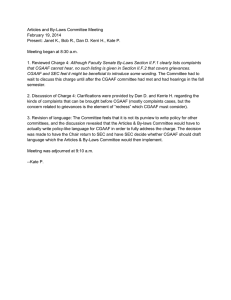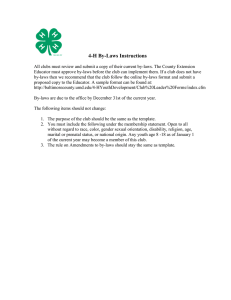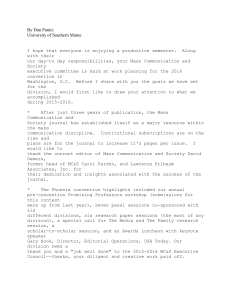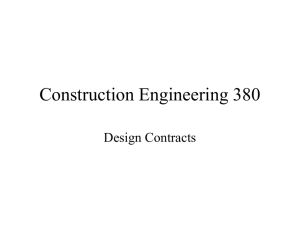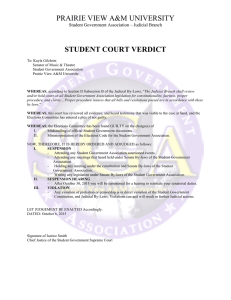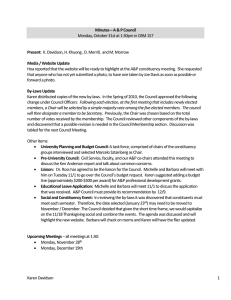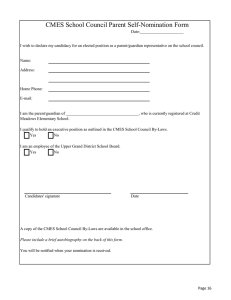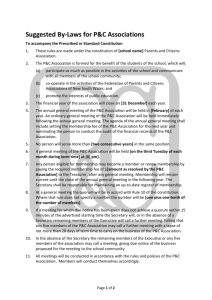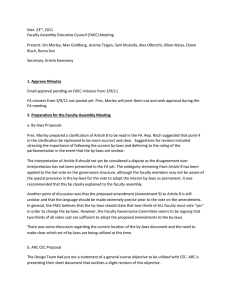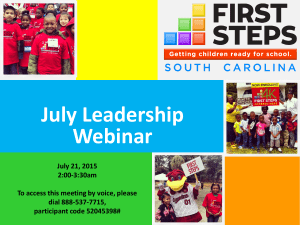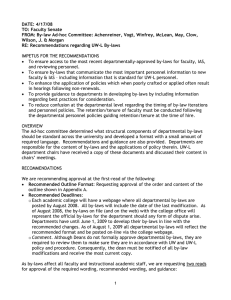Faculty Meeting Review Group Alvan Bregman (convener), Lisa Hinchliffe, Joanne Kaczmarek
advertisement
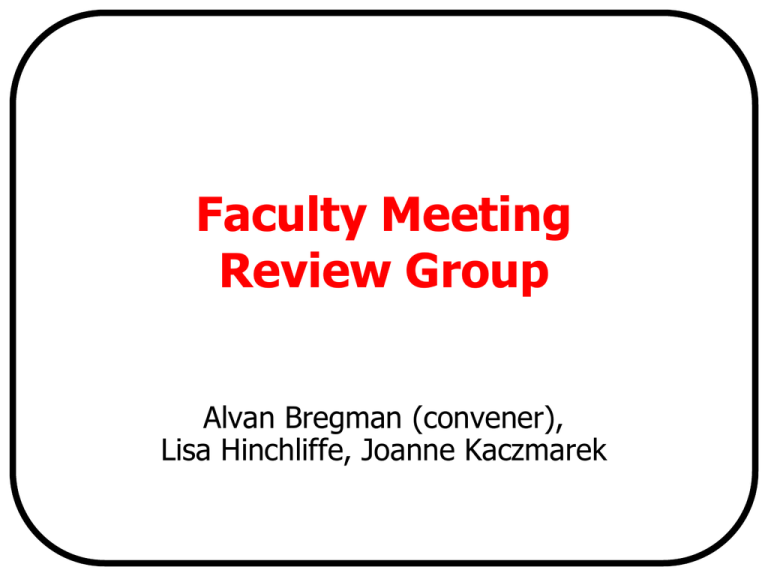
Faculty Meeting Review Group Alvan Bregman (convener), Lisa Hinchliffe, Joanne Kaczmarek Charge The Library's Executive Committee charged the group to prepare a White Paper on: Faculty Meeting structure, format, and agenda items -- in particular the expressed desire for Faculty Meetings to include more open discussions of issues and NSM (and other) activities. Process • Review group discussion, document review (by-laws), and planning • Open meeting • Draft report for comment • Final report • Modeled recommended practices Challenges • • • • • Communication about Meetings Number/Schedule of Meetings Attendance at/Participation in Meetings Structure of Meetings Content of Meetings Beliefs of the Review Group • No by-laws changes are required to implement the recommendations. • No policy changes are required to implement the recommendations. • Procedures and workflows would need modification along with assignment of responsibility for certain tasks. Recommendations for Action 1. 2. 3. 4. Encourage an atmosphere of discussing issues and of giving advice during Faculty Meetings. This can be nurtured by encouraging and accepting motions from the floor, consistent with the rules of order. Include more real business matters that must be decided upon by votes during Faculty Meetings. This would make attendance at Faculty Meetings more meaningful in busy times. The By-laws Committee should review the role of the Faculty Secretary and suggest revisions to make that role more substantive. For efficiency and to enable new ideas to emerge through dialogue among colleagues, EC should solicit feedback at Faculty Meetings instead of encouraging each individual faculty member to consider issues individually and submit written comments privately. While those who wish to comment privately and confidentially should still be able to do so, we urge faculty members to post their comments to EC on the Libfac-L electronic discussion list. We think posting comments more broadly would create an atmosphere of open communication and serve the Library well. <EXAMPLE IS THIS AGENDA ITEM> Recommendations for Action (cont) 5. The skeleton agenda for Faculty Meetings is not defined by the By-laws, and we suggest several ways of making the agenda more meaningful: • • • • • • • • Use email to give reports whenever possible, and use the meeting to discuss topics related to these reports. Reports and discussion documents should accompany the agenda, which is issued a minimum of 3 days before a meeting according to the By-laws. Increase the time slot allocated to the Executive Committee and call this a "discussion of issues" not a "report." Introduce an agendum to approve the agenda, allowing other issues to be considered if time permits. While the New Service Model initiative operates, have a regular discussion agendum on this subject. <IMPLEMENTED> Regularly invite administrative units (e.g., Facilities, HR) to report on matters affecting the Library as a whole - perhaps on an annual schedule reflecting particular timelines, e.g., graduate assistant hiring. Make agendas of the Budget Group and other important committees available to the Secretary, who could consider inviting discussion on matters of general principle. Establish a formal Agenda Committee to ensure that fewer meetings are canceled for want of agenda items: At least one open-ended question could be posed to faculty each meeting, especially in such critical times. Include agenda items related to the normal calendar of University and Library business. For example, the preparation of campus budget requests and the results of budget allocations could be discussed at foreseeable times each year. Promotion and tenure timetables are also predictable: a Faculty Meeting is an appropriate place to discuss any regulatory changes put forward by in provostial Communications. Recommendations for Action (cont) 6. Issues that should always come for discussion at Faculty Meetings include: • • • Changes to the Library's Mission Statement Content of the Library's Strategic Plan Definition of "Principles" that underlie a major Library-wide initiative, such as the New Service Models. Questions? Comments?
